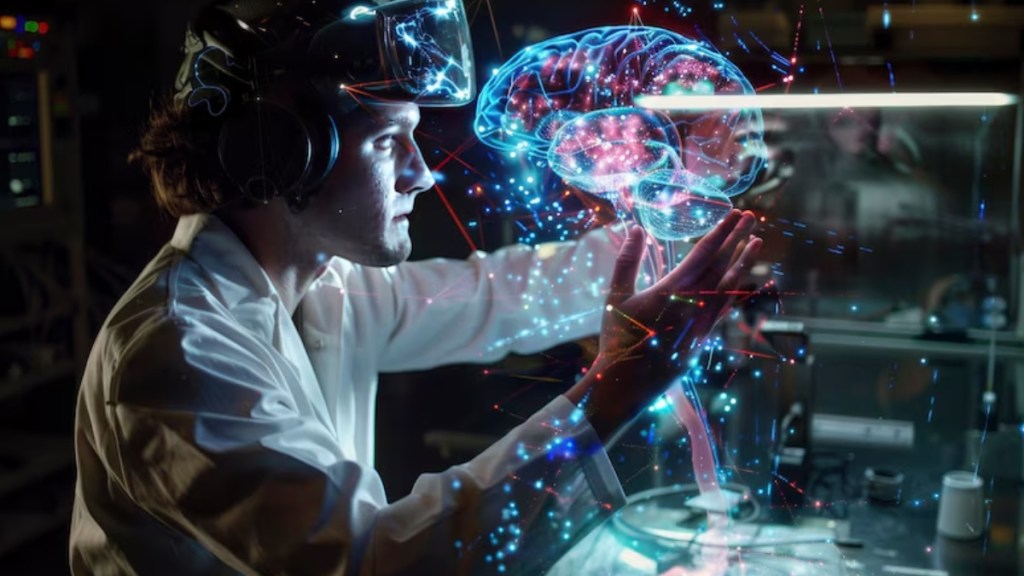By Dr. Samant Darshi
In recent years, the discourse around mental health has gained significant momentum worldwide, and India is no exception. With a burgeoning student population facing unprecedented challenges, there’s a growing realisation of the need for innovative solutions to address mental health concerns effectively.
As the burden of mental health issues continues to rise globally, AI and machine learning (ML) are paving the way for innovative solutions in psychodiagnostic and psychotherapeutic tools. In a country like India, where there is a significant gap in the availability, accessibility, and affordability of mental health services, AI-driven technologies can play a pivotal role in bridging this divide.
Before delving into the role of AI, it’s crucial to grasp the mental health landscape for Indian students. Academic pressure, societal expectations, financial stress and the transition to adulthood often contribute to heightened stress levels and mental health issues among students. However, cultural stigma and a shortage of mental health professionals hinder access to adequate support and treatment. Consequently, many students grapple with their mental health silently, leading to long-term consequences on their academic performance and overall well-being.
AI in mental health assessment
AI algorithms are increasingly being used to analyse speech, text, and behaviour patterns, offering early detection and personalised treatment recommendations for mental health conditions. By leveraging natural language processing (NLP) and machine learning, these algorithms can identify subtle cues in a person’s speech or writing that may indicate the onset of mental health issues such as depression, anxiety, or schizophrenia.
For instance, AI systems can analyse the tone, pace, and content of a patient’s speech during a therapy session to detect signs of emotional distress or cognitive decline. Similarly, text-based analysis can be employed to scrutinise social media posts, emails, or diary entries for language patterns that correlate with specific mental health disorders. These technologies enable the early identification of mental health issues, which is crucial for timely intervention and improved outcomes.
Personalised treatment recommendations
Beyond diagnosis, AI has the potential to revolutionise the way mental health treatments are tailored to individual patients. By analysing vast amounts of data from electronic health records, wearable devices, and other sources, AI can identify patterns and predict which treatments are likely to be most effective for a particular individual. This personalised approach can enhance the efficacy of treatments, reduce the trial-and-error process often associated with mental health care, and improve patient satisfaction.
Addressing India’s mental health crisis
India faces a formidable challenge in addressing mental health needs, with a large population and limited resources. The country has one of the lowest ratios of mental health professionals to patients in the world, leading to a significant treatment gap. Many individuals do not receive the care they need due to factors such as stigma, lack of awareness, and geographic barriers.
AI can be a game changer in this context. AI-powered chatbots and virtual therapists can provide immediate support and counselling to individuals in need, particularly in remote or underserved areas. These tools can offer psychoeducation, crisis intervention, and even cognitive behavioural therapy (CBT) techniques, making mental health support more accessible and scalable.
Moreover, AI-driven platforms can facilitate standardised assessments and treatments, ensuring that patients receive consistent and high-quality care regardless of their location. By automating routine tasks, AI can also free up human therapists to focus on more complex cases, improving overall service efficiency.
Challenges and considerations
While the potential benefits of AI in mental health care are significant, several challenges must be addressed to fully realise its promise. Ensuring the privacy and security of patient data is paramount, given the sensitive nature of mental health information. Additionally, AI systems must be designed to avoid biases and ensure that they are culturally sensitive and inclusive.
Ethical considerations also come into play, particularly in the context of decision-making and patient autonomy. It is crucial that AI tools complement, rather than replace, human judgement and empathy in mental health care.
Conclusion
AI and ML hold immense potential to transform mental health care, offering innovative solutions to the challenges of diagnosis, treatment, and accessibility. In India, where the treatment gap is vast, these technologies can be particularly impactful, providing scalable and standardised mental health support to millions. By harnessing the power of AI, we can move towards a future where mental health care is more accessible, effective, and personalised, ultimately improving the well-being of individuals and communities across the country.
The author is director- psymate healthcare and psychiatrist at Yatharth Hospitals. Views are personal.

